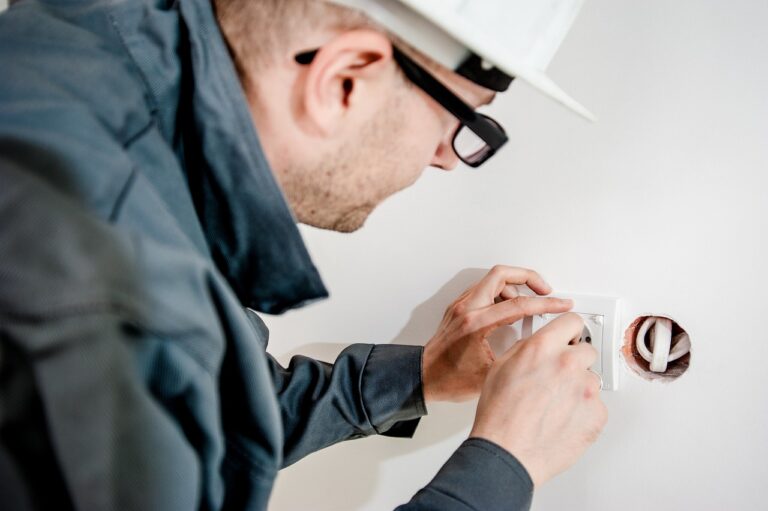Investing in Next-Generation Aerospace Psychological Support Systems: All panel, Cricbet99, Lotus365win login
all panel, cricbet99, lotus365win login: Investing in Next-Generation Aerospace Psychological Support Systems
In the fast-paced and high-stress world of aerospace engineering and space exploration, the mental well-being of astronauts and engineers is crucial for mission success. As we push the boundaries of what is possible in space exploration, there is a growing recognition of the need for robust psychological support systems to ensure the mental health and resilience of individuals working in this field. Investing in next-generation aerospace psychological support systems is not just essential for the well-being of those involved in space missions, but it is also a key factor in the success of future space exploration endeavors.
The unique challenges of working in the aerospace industry make it imperative to have specialized psychological support systems in place. From the extreme environments of space to the high-pressure work environments on the ground, aerospace professionals face a range of stressors that can impact their mental health. Factors such as isolation, long-duration missions, and the inherent risks associated with space travel can all take a toll on individuals well-being. This is why investing in next-generation aerospace psychological support systems is so critical.
By providing astronauts and engineers with access to tailored psychological support services, we can help them cope with the stressors of their work and enhance their overall mental well-being. From pre-mission counseling to in-flight support and post-mission debriefing, these systems can provide individuals with the tools and resources they need to thrive in the challenging environments of space exploration. Additionally, these support systems can help identify and address any mental health issues that may arise, ensuring that individuals receive the care and support they need to stay healthy and resilient.
One of the key components of next-generation aerospace psychological support systems is the use of advanced technologies to deliver mental health services. Telemedicine, virtual reality therapy, and artificial intelligence-driven tools are just a few examples of the innovative solutions that are being developed to support the mental health of astronauts and engineers. These technologies can provide individuals with access to mental health services no matter where they are located, making it easier for them to seek help when they need it most.
Another important aspect of next-generation aerospace psychological support systems is the emphasis on preventative care. By proactively addressing mental health issues and promoting resilience in individuals, these systems can help prevent more serious problems from arising in the future. This focus on prevention can lead to better overall mental health outcomes for individuals working in the aerospace industry, ensuring that they are better equipped to handle the demands of their work.
As we look to the future of space exploration, it is clear that investing in next-generation aerospace psychological support systems will be essential for the success of missions and the well-being of individuals involved. By prioritizing mental health and resiliency in our approach to space exploration, we can ensure that astronauts and engineers are able to perform at their best and achieve great things in the realm of space travel.
Heading 1: The Importance of Mental Health in Aerospace Engineering
Heading 2: Unique Challenges of Working in the Aerospace Industry
Heading 3: Tailored Psychological Support Services for Astronauts and Engineers
Heading 4: Advanced Technologies in Aerospace Psychological Support Systems
Heading 5: Focus on Preventative Care for Mental Health
Heading 6: The Future of Space Exploration and Mental Health
FAQs
1. Why is mental health important in the aerospace industry?
Mental health is crucial in the aerospace industry because the unique challenges and stressors faced by astronauts and engineers can impact their well-being and performance. Investing in psychological support systems can help individuals cope with these challenges and thrive in their work.
2. What are some of the unique challenges of working in the aerospace industry?
Factors such as isolation, long-duration missions, and the risks associated with space travel are some of the challenges faced by individuals in the aerospace industry. These can impact mental health and well-being, highlighting the need for specialized support systems.
3. How can advanced technologies support mental health in space exploration?
Technologies such as telemedicine, virtual reality therapy, and artificial intelligence-driven tools can provide individuals with access to mental health services no matter where they are located. These tools can help individuals cope with stressors and enhance their overall well-being.
4. Why is preventative care important in aerospace psychological support systems?
Preventative care is crucial in aerospace psychological support systems because it can help address mental health issues before they become more serious. By promoting resilience and proactively addressing mental health, these systems can improve overall outcomes and well-being.
Investing in next-generation aerospace psychological support systems is essential for the success of space exploration missions and the well-being of individuals working in this field. By prioritizing mental health and resilience, we can ensure that astronauts and engineers are able to thrive in their work and achieve great things in the realm of space travel.







